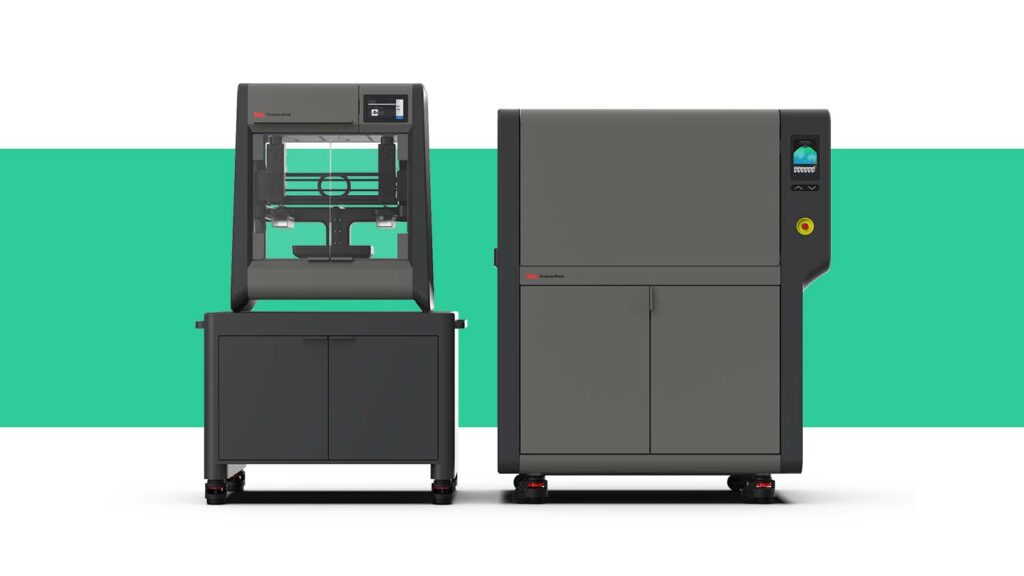The Desktop Metal Studio System 2 has been announced, with Desktop Metal’s new technology eliminating the need for solvent debinding.
This shortened, two-step process, sees the Studio System 2 eliminate the use of chemical solvents with all-new material formulations that allow parts to be transferred directly from the printer into the furnace.
The resulting process removes the need for harsh chemical consumables, simplifies the process, and reduces the overall system footprint.
Desktop Metal’s Fabricate software workflow offers to automate part creation through 3D printing and sintering to produce end-use parts with densities and feature accuracy similar to casting.
“As additive manufacturing adoption advances worldwide, Desktop Metal continues to drive innovations that enable the technology to more effectively compete with conventional manufacturing processes,” said Desktop Metal CEO Ric Fulop.
“Our next-generation Studio System 2 takes the best features of the original Studio System+ and significantly improves upon them, delivering higher quality end-use metal parts through a more streamlined and accessible process, and within an even smaller footprint.”
The Studio System, which first debuted in 2017, is marketed as an ‘office-friendly’ metal additive manufacturing system that leverages Desktop Metal’s proprietary Bound Metal Deposition technology, a powder metallurgy-based process in which loose powders and dangerous lasers commonly associated with metal 3D printing are eliminated in favour of bound metal rods to shape parts layer-by-layer.
A new isotropic TMPS infill helps to build strong parts, ideal for end-use applications. Vacuum sintering in the Desktop Metal furnace at temperatures of up to 1400°C produces parts and mechanical properties that are similar to castings and meet or exceed Metal Powder Industries Federation (MPIF) standards.
The Studio System 2 is launching with 316L stainless steel, with a broad portfolio of additional materials slated to rollout in 2021.
In addition, the Studio System 2 will be backwards-compatible through the use of the debinder, with all materials previously supported by the Studio System, including 17-4PH stainless steel, 4140 low alloy steel, H13 tool steel, and Copper.
The Desktop Metal Studio System 2 is set to begin worldwide shipment in the first quarter of 2021, and will also be available through an upgrade for all existing Studio System customers.






